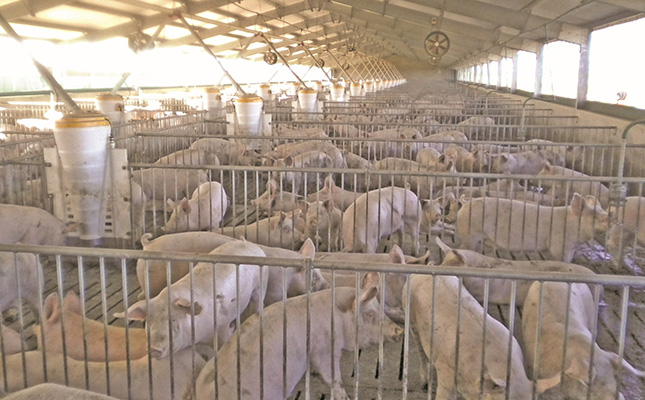
Photo: FW Archive
The current heatwave in China has now surpassed the 70-day mark and is the longest and most widespread on record.
According to Reuters, about 30% of the 600 weather stations situated along that country’s Yangtze River had recorded their highest temperatures ever by the third week of August.
Although lower temperatures were reported in some regions during the same period, authorities throughout the Yangtze River basin were struggling to limit the damage to crops and livestock.
The southwestern region of Chongqing had been especially hard hit, resulting in its agriculture bureau being forced to draw up emergency measures to protect livestock on more than 5 000 large-scale pig farms that were facing “severe challenges” as a result of the heat, Chinese state media said.
Prof Lin Zhong of the City University of Hong Kong, who had conducted extensive research on the impact of climate change on agriculture in China, said that water scarcity and damage to crops could “spread to other food-related sectors, resulting in substantial price increases, or a food crisis in the most severe scenario”.
Although China’s National Meteorological Information Centre downgraded its national heat warning to ‘orange’ after 12 consecutive days of ‘red alerts’ in mid-August, temperatures were still expected to exceed 40˚C in Chongqing, Sichuan and other parts of the Yangtze River basin during the remainder of the month.
Experts in that country warned that China was especially vulnerable to climate change, and that an increase in the incidence of natural disasters was expected in the coming years due to more volatile weather events.
According to Reuters, China was the world’s largest emitter of greenhouse gasses, but was committed to becoming ‘carbon neutral’ by 2060, and was also accelerating renewable energy development programmes.
However, due to the severe drought conditions, hydropower generation had been eroded, and coal-fired power generation was again on the rise.
At the same time, prospects for international co-operation in the fight against climate change were weakening following a visit by Speaker of the US House of Representatives Nancy Pelosi to Taiwan earlier in August.
In retaliation, Chinese authorities cancelled talks on climate change scheduled with the US, which removed an important channel of communication to drive greener policies, Reuters said.













